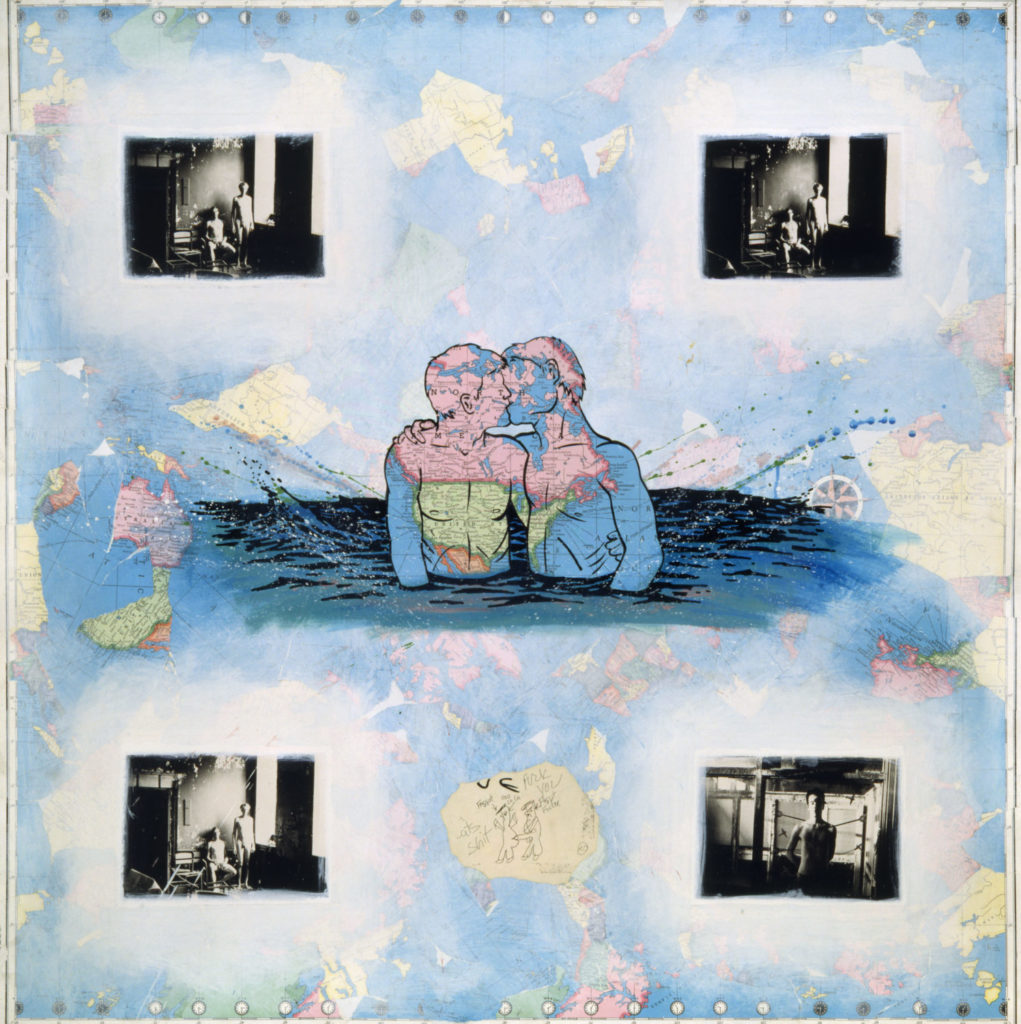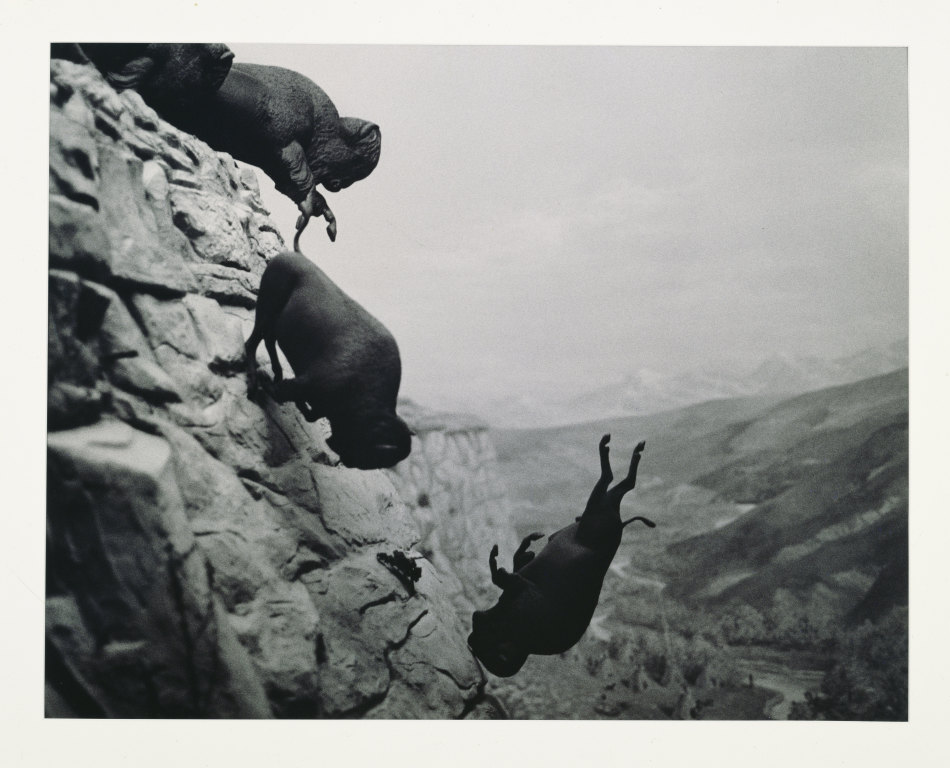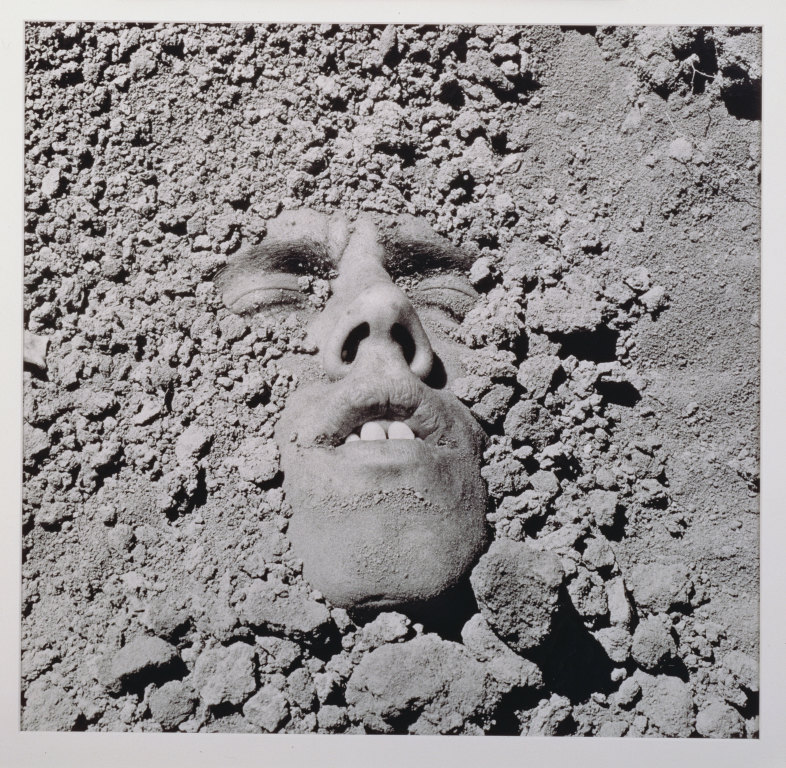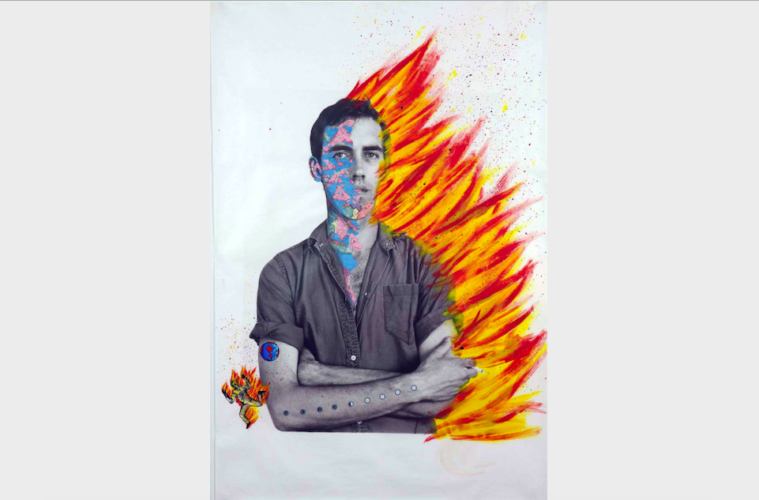The title of this film, like the romantic and angry painting of the same name which it honors, is meant to shock, provoke curiosity, express deep personal and societal pain, and be impossible to ignore or forget. In that and in countless other ways, Wojnarowicz: F**k You F*ggot F**ker is not only a thorough biographical documentary, but in its own aesthetic form, a properly rapid-fire homage evoking the seminal artist’s inimitable style.
Its director Chris McKim makes ample and inspired use of the late artist’s own extensive video and audio, photography, ephemera, journals — all of which had been the foundational accumulation of David Wojnarowicz’s practice. An obsessive chronicler of his own life and the state of political media, Wojnarowicz taped his own calls, kept his answer phone messages, videotaped seemingly every moment of his life, and for good measure, wrote it all down as well — much with the express intention of creating a testament for posterity, an impulse sharpened by his AIDS diagnosis and the encroaching certainty of an early death.
Wojnarowicz was a painter at his core, but absolutely no medium nor process nor technique nor genre was off limits. Really, nothing was off limits. As much a biographical foray, this film chronicles with awe and empathy the absolutely wild world of the lower Manhattan art scene in the late 1980s. As New York City, and especially its queer and bohemian communities, became the epicenter of the AIDS epidemic, Wojnarowicz was radicalized by trauma and confrontations with an uncaring society. He went to war — and it worked.

David Wojnarowicz, Fuck You Faggot Fucker, 1984 © Estate of David Wojnarowicz. (Courtesy of the Estate and P.P.O.W)
He died in 1992 at the age of 37, but not before he changed the world. He was celebrated and embattled, an artistic community organizer, a startling success and a fascinating emblem of his time and place even as he interrogated it. Was he fearless or plagued by fear? He was angry but so caring, fiery but so clear-eyed, a loner but surrounded by love. Folks interviewed for this film and/or appearing in archival materials include his confidant and frequent collaborator, the photographer Peter Hujar, plus Fran Lebowitz, gallerists Gracie Mansion and Penny Pinkington, critic and historian Carlo McCormick, artist Kiki Smith, a host of downtown luminaries (Karen Finley, Keith Haring, obviously Warhol and Basquiat, etc.) and loads of fancy uptown art world folks, too. He lived long enough to be shown at the Whitney, targeted by Jesse Helms, make a U2 album cover, and be interviewed on the national news by Peter Jennings.

David Wojnarowicz, Untitled, 1988-89. © Estate of David Wojnarowicz. (Courtesy of the Estate and P.P.O.W)
As for the work itself — Wojnarowicz’s actual art — the film also does a gorgeous job of not only presenting, but explaining in detail the backstory, certain contents, and most especially the context in which the works, especially the many very fine paintings, were made and shown. Wojnarowicz had a very particular way of hybridizing transgressive imagery with a poetic aesthetic in his paintings. For example, in any of a number of works depicting explicit gay sex, offensive homophobic slurs, diaries of suffering and betrayal, religious hypocrisy, and the torments of drug addiction, viewers will also find sweetly rendered figures, emotional even lyrical palettes, high-end cartoon humor, and nods to arte povera’s innovative desperations.
His own visual, video and audio collages were themselves comprehensive and chaotic, with surreal wit and an intense density that prefigured post-internet information overload and communicated the essential volatility of human existence. The narrative of his work and intentions was unapologetically activist and in that way specific to a realm of experiences — but his profound understanding of the untamed forces that buffet a human life and sometimes bully us out of existence was and remains all too universal. In its embrace of that energy, the film is a lesson, but it is also an experience.
For more information visit kinolorber.com. The film is available on demand now, in L.A. via Laemmle Theaters streaming service.

David Wojnarowicz, Untitled, 1990. © Estate of David Wojnarowicz. (Courtesy of the Estate and P.P.O.W)
Advertising disclosure: We may receive compensation for some of the links in our stories. Thank you for supporting LA Weekly and our advertisers.

